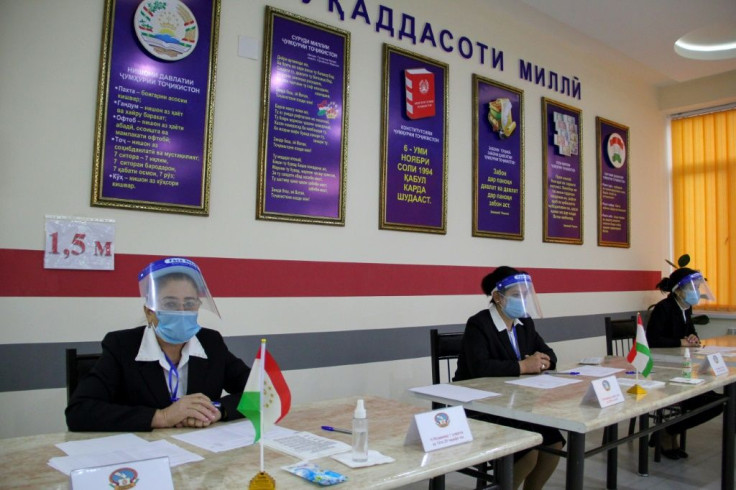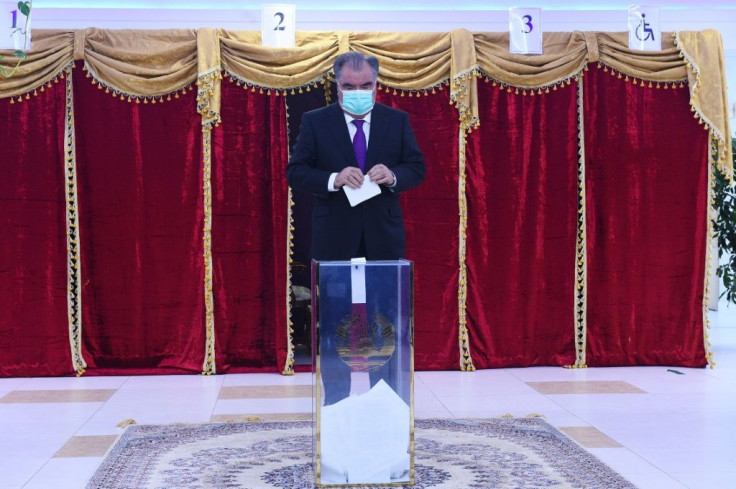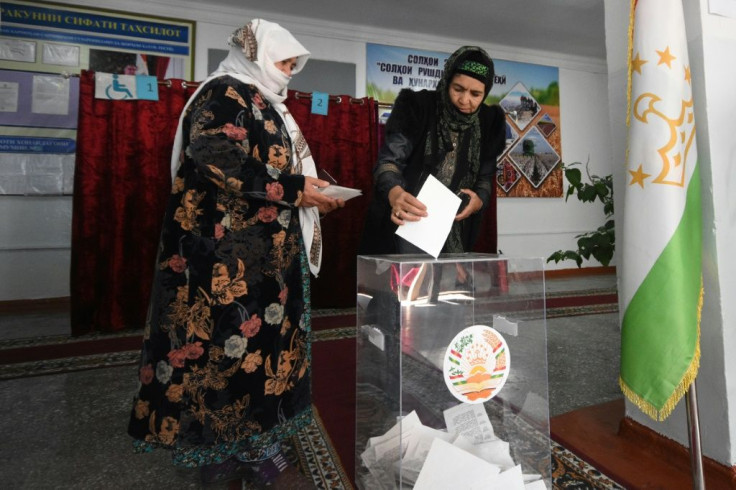Tajikistan's Strongman Leader Wins Re-election
Tajikistan's leader Emomali Rakhmon was re-elected with over 90 percent of the vote Monday following a presidential poll in which he faced only token opposition.
The win will allow the 68-year-old strongman to pass three decades in power and overtake Kazakhstan's recently retired Nursultan Nazarbayev as the former Soviet Union's longest-ruling leader.
The Central Electoral Commission said that 90.9 percent of voters in Sunday's poll had cast their ballot for Rakhmon who will secure a fresh seven-year term, according to preliminary results.
Turnout was over 85 percent, according to the Central Electoral Commission.

While disputed ballots in neighbouring Kyrgyzstan and fellow former Soviet republic Belarus have triggered massive upheaval, similar developments appear unlikely in Tajikistan.
But Rakhmon and his government face unprecedented challenges after the weakest economy of all Soviet successor states joined others in being battered by the coronavirus pandemic.
Over a million Tajiks are believed to work abroad, mostly in Russia.
Alex Kokcharov, a country risk research analyst at IHS Markit in London said remittances sent home dropped "by 15-25 percent year on year in the first half, according to differing reports."

If a large number of Tajik migrant workers "would come back to Tajikistan from Russia where many have lost jobs in this year's crisis, it will increase domestic instability - both politically and economically," said Kokcharov, whose company predicts a 6.5 percent contraction of the economy this year.
The bleak economic outlook also raises questions about how the government will be able to service external debt, equating to more than a third of GDP, with China a leading debt-holder.
But voters interviewed by AFP in the capital Dushanbe overwhelmingly said they intended to vote for Rakhmon, with many citing the importance of peace and stability more than two decades after the conclusion of a bitter civil war.

Safar Mallayev, 66, was voting for Rakhmon because of his "enormous experience".
"Peace is the main thing. If we have peace it means everything will be alright," Mallayev said.
The civil war pitted government forces against a diverse opposition including Islamist fighters.
Rakhmon was first elected president in 1994, after the position was re-established, and re-elected in 1999, 2006 and 2013. None of these votes were endorsed by international monitors.
Constitutional changes passed in 2016 allowed the "Founder Of Peace and National Unity, Leader of the Nation", as Rakhmon is officially known, to run for office an unlimited number of times.
Rights groups have flagged an intensifying crackdown on opposition, media and civil society since the changes took effect.
The year before, authorities banned an Islamic opposition party, seen as a legacy of the peace deal, and began jailing its members. Several have died whilst serving their sentences.
Th only recognised opposition party, the Social Democratic Party of Tajikistan, boycotted Sunday's vote.
"We see that all power structures, all levers (of government) work for the benefit of one person," the party's deputy chairman Shokirjon Hakimov told AFP.
Hakimov added that politics in the country under Rakhmon's rule has been defined by "nepotism, regionalism and corruption."
This time round, some observers had expected Rakhmon to ape 80-year-old Nazarbayev's decision last year to step down from the top job and install a loyalist in his place.
In Tajikistan, any future succession is likely to be hereditary, analysts believe.
Earlier this year, Rakhmon's son Rustam Emomali was elected chairman of parliament's upper house in a move that positions him as constitutionally second-in-line to the presidency.
© Copyright AFP {{Year}}. All rights reserved.





















